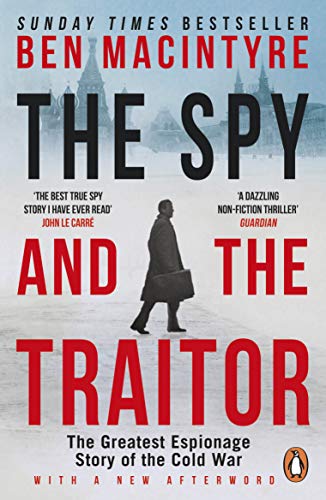இந்த வருடத்தில் இரண்டாவதாக படித்த புத்தகம் இது – செல்வேந்திரன் எழுதிய “வாசிப்பது எப்படி”.
வாசிப்பு பழக்கம் ஏன் அவசியம்? எப்படி வாசிப்பது? எப்படி வாசிப்பை வாழ்வில் ஒரு அங்கமாக மாற்றிக் கொள்வது?
“வாசிப்பு பழக்கம் ஏன் அவசியம்? எப்படி வாசிப்பது? எப்படி வாசிப்பை வாழ்வில் ஒரு அங்கமாக மாற்றிக் கொள்வது?” போன்ற கேள்விகளை எழுப்பி பதில் கூறும் புத்தகமே இது. பள்ளி மற்றும் கல்லூரி மாணவர்களுக்காக எழுதப்பட்டாலும் வாசிப்பை பழகிக் கொள்ள விரும்பும் எவரும், அல்லது இழந்த பழக்கத்தை புதுப்பித்துக் கொள்ள விரும்பும் எவரும் இந்த புத்தகத்தை படிக்கலாம். நேற்று பிக் பாஸ் நிகழிச்சியில் கமல் இந்த புத்தகத்தை பரிந்துரை செய்தார். நிகழ்ச்சியின்போதே (நிகழ்ச்சி அவ்வளவு சுவாரசியமாக இல்லை!) கிண்டிலில் தரவிறக்கம் செய்து படிக்க தொடங்கினேன். பிரைம் வாடிக்கையாளர்கள் அமேசான் பிரைம் ரீடிங்கில் இந்த புத்தகம் இரவல் வாங்கி படிக்கலாம. சிறிய புத்தகம்தான். இரண்டு மூன்று மணிநேரத்தில் படித்து விடலாம். கடுகு சிறுத்தாலும் காரம் குறையாது என்பதற்கேற்ப சிறிய புத்தகமே எனினும் பல ஆழமான கருத்துகளை கொண்டுள்ளது.
ஏன் வாசிக்க வேண்டும்?
வாசிப்பின்மை ஒரு உலகளாவிய சமூக பிரச்சினை என்கிறார் செல்வேந்திரன். அவர் பகிரும் சில தகவல்கள் ஆச்சிரியமும், அதிச்சியும், கவலையும் அளிக்கிறது. “தமிழகத்தின் ஆளுநர் யார்? இந்தியாவின் குடியரசு தலைவர் யார்?” இந்த கேள்விகளுக்கு பெரும்பான்மையான கல்லூரி மாணவர்களுக்கு பதில் தெரியவில்லை என்கிறார். சில கல்லூரி ஆசிரியர்களுக்கு கூட! மேலும் “2 சதவீதத்திற்கும் குறைவான மாணவர்களே தங்களது பாடத்தைத் தாண்டி நாளிதழ்களோ அல்லது அன்றாடம் தொலைக்காட்சிச் செய்திகளோ பார்ப்பவர்கள். ஒரு சதவீதம் பேர்தான் வருடத்திற்கு ஒரு புத்தகமேனும் வாசிப்பவர்கள்.” இதனால் என்ன பிரச்சினை? செல்வேந்திரன் பதில் கூறுகிறார் – “தான் வாழும் உலகைப் பற்றி, தன்னைச் சுற்றி நிகழ்வன பற்றி, திணிக்கப்படும் அரசியலைப் பற்றி, யார் முடிவெடுக்கிறார்கள், யார் பலன் பெறுகிறார்கள், ஏன் இப்படி நிகழ்கிறது, நம்முடைய பங்களிப்பு என்ன, நாம் செய்யக்கூடாதவை எவை என எதைப்பற்றியும் ஒரு துளி அறிவில்லாதவர்களை வைத்துக்கொண்டு இந்தச் சமூகம் எந்தப் பாதையில் பயணிக்கும்?”
“தான் வாழும் உலகைப் பற்றி, தன்னைச் சுற்றி நிகழ்வன பற்றி, திணிக்கப்படும் அரசியலைப் பற்றி, யார் முடிவெடுக்கிறார்கள், யார் பலன் பெறுகிறார்கள், ஏன் இப்படி நிகழ்கிறது, நம்முடைய பங்களிப்பு என்ன, நாம் செய்யக்கூடாதவை எவை என எதைப்பற்றியும் ஒரு துளி அறிவில்லாதவர்களை வைத்துக்கொண்டு இந்தச் சமூகம் எந்தப் பாதையில் பயணிக்கும்?”
அறியாமையே எல்லா சமூக இழிவுகளுக்கும் அடிப்படை காரணம். இது உண்மைதான். இன்றைய உலகில் சத்தியமான உண்மை! சில நாட்கள்களுக்கு முன் எனக்கு வாட்ஸாப்ப் பகிர்வு ஒன்று வந்தது. “போப்பாண்டவர் கைது செய்யப்பட்டார்” என்றது. படித்த மாத்திரத்தில் கண்டிப்பாக இது ஒரு பொய் என்று விளங்கிக்கொண்டேன். ஆனால் இது ஏன் பகிரப்படுகிறது? பலரும் இதை சில கணங்களாவது நம்புகிறார்கள் என்பதனால்தானே! சமூக வலைத்தளங்கள்தான் உண்மையான வெப்பஅன்ஸ் ஆப் மாஸ் டெஸ்ட்ருக்ஷன்! போலி செய்திகள் ஒரு அபாயம் மட்டுமே. உலகமெங்கும் தேசம்ரீதியாக, மதரீதியாக, மொழிரீதியாக, தர்க்கரீதியாக, அரசியல்ரீதியாக பிளவுகள் விரிந்துகொண்டே வரும் காலம் இது. சமூக வலைத்தளங்கள் இதனை இன்னும் வேகமாக்குகிறது. “எக்கோ சேம்பேர்” என்பார்கள். “எதிரொலி கூடம்” என்று பொருள். அதாவது நமக்கு உடன்பாடான கருத்துக்களையே நமது சமூக வலைத்தளங்களில் நாம் எதிர்கொள்வோம். உங்களது வாட்ஸாப்ப், முகநூல் திறந்து பாருங்கள். உங்களுக்கு உடன்பாடான அரசியல் கருத்துகளை கொண்ட பகிர்வுகள் மேலோங்கி இருக்கும். உங்கள் அபிமான நடிகர், பாடகர் சம்பந்தமான செய்திகளே உங்களை வரவேற்கும். இப்படிப்பட்ட சூழலில் பல விதமான புத்தகங்களை வாசிப்பதன் மூலமே நாம் நம்மையும், நம் வரும்காலத்தையும் காத்துக்கொள்ள முடியும்.
இரண்டாவதாக வாசிப்பு பொருளாதார பலன்களை அளிக்கும், வேலைவாய்ப்பில் முன்னேற உதவும் என்கிறார் ஆசிரியர். இதுவும் உண்மைதான். நான் இன்று இருக்கும் இடத்திற்கு என்னை அழைத்து வந்ததில் என் வாசிப்பு ஒரு முக்கிய பங்காற்றிருக்கிறது. என்னை வாசிப்பிற்கு அறிமுகம் செய்தவர் எனது அம்மா. அவர் வாழ்க்கையில் எந்த புத்தகமும் படித்திருக்க மாட்டார். அதனால்தான் என்னை படிக்கச்செய்தார். ஆனால் இன்னொரு முக்கிய காரணம் – அவர் நான் தெருவிலோ, விளையாட்டு திடலிலோ, வேறு வீட்டிருக்கோ சென்று விளையாடுவதை பெரிதும் விரும்பவில்லை! என் பொழுதுபோக்க என்னை ஒரு வாடகை புத்தக நிலையத்தில் சேர்த்து விட்டார். கந்தன் வாடகை புத்தக நிலையம்.

வாரம் ஒரு முறை கூட்டிச்செல்வார். ஒரு வாரத்திற்க்கான புத்தகங்களை வாங்கி கொண்டு வருவேன். Enid Blyton தொடங்கி Hardy Boys, Jeffrey Archer, Fredrick Forsyth என பல புத்தங்களை படிக்க தொடங்கினேன். பொறியியல் கல்லூரியில் புனைவுகளை தாண்டி படிக்க ஆரம்பித்தேன். Lee Iacoccaவின் சுயசரிதை நான் படித்த முதல் மேலாண்மை சம்பந்தப்பட்ட புத்தகம். இந்த வாசிப்பு நான் மேலாண்மை படிக்க விண்ணப்பிக்கும்போது உதவியது. ஆறு கல்லூரிகளின் நேர்காணலில் பங்கு கொண்டேன். ஆறிலும் புத்தங்கள் பற்றியே பல நிமிடங்கள் பேசி இருப்பேன். ஆறிலும் அனுமதி கிடைத்தது. ஏழாவது நேர்காணல் முனைவர் படிப்பிற்கானது. அதிலும் நான் படித்த Competing for the Future, The Fortune at the Bottom of the Pyramid என்ற புத்தகங்கள் கை கொடுத்தது.
“புத்தகங்கள் கொஞ்சம் கொஞ்சமாகத்தான் நம்மை உள்ளிழுத்துக்கொள்ளும். அதற்குரிய பொறுமையையும் மரியாதையையும் நாம் புத்தகங்களுக்கு வழங்க வேண்டும்.”
சில வருடங்களாக படிப்பது குறைந்து விட்டது. வேலையே பாதி படிப்பதுதான் என்பதும், வேலை சுமையினாலும், வேலை தாண்டி படிப்பது குறைந்து விட்டது. ஆனால், இவை எல்லாம் வெறும் சாக்குகளே! உண்மை காரணம் – ஸ்மார்ட் (?) போன் தான்! “ஓரொரு நிமிடமும் பரபரப்பு கூட்டும் சமூக வலைதளங்களுக்குப் பழகிய ஒருவர் புத்தகங்களைப் பொறுமையாக வாசித்தல் இயலாத காரியம். அடுத்தத் தெருவில் ஆடல் பாடல் நிகழும்போது ஒருவன் வீட்டில் அமர்ந்து பாராயணம் செய்ய முடியுமா என்ன?” என்று சரியாக கூறுகிறார் செல்வேந்திரன். காணொளி (வீடியோ) பார்த்து மட்டும் அறிவை வளர்த்துக்கொள்ள முடியாது என்கிறார். காணொளி நமது கற்பனையை கட்டுப்படுத்தும். முழு கவனத்தையும் ஈர்க்காது. ஆழமான புரிதலை தராது. புத்தகங்களுக்கீடான பரவசத்தை ஏற்படுத்தாது. இந்த புத்தகத்திலேயே ஒரு சிறப்பான வாக்கியம் இது – “புத்தகங்கள் கொஞ்சம் கொஞ்சமாகத்தான் நம்மை உள்ளிழுத்துக்கொள்ளும். அதற்குரிய பொறுமையையும் மரியாதையையும் நாம் புத்தகங்களுக்கு வழங்க வேண்டும்.” மற்றோன்று – “கடுமையான உடற்பயிற்சிகளை மேற்கொள்ள கடும் ‘வில் பவர்’ (மன உறுதி) தேவை என்பார்கள். ஆனால் வாசிப்பு விஷயத்தில் ‘வில் பவர்’ போதாது. ‘லவ் பவர்’ வேண்டும்.”
எப்படி வாசிக்க வேண்டும்?
“வாசகனின் முதன்மையான கடமை வாசிப்பதே. திறந்த உள்ளத்துடன். இரண்டாவது தன் சூழலை வாசிப்பை நோக்கித் திருப்புதல்.” “ஒருநாளின் குறிப்பிட்ட நேரத்தில் நீங்கள் தீர்மானித்த செயலை மட்டுமே தொடர்ச்சியாக செய்வதன் பலன்கள் அபரிமிதமானவை. உதாரணமாக, நீங்கள் தினமும் காலை 7 மணி முதல் 7: 30 வரை 30 நிமிடங்கள் வாசிக்க மட்டுமே ஒதுக்கி புத்தகம் படிக்கத் துவங்கினீர்கள் என்றால் ஓராண்டுக்கு குறைந்தது 12000 பக்கங்கள் வாசிக்க முடியும். சுமார் 200 பக்க அளவுள்ள 65 நூல்களை வாசிக்க முடியும். தொடர்ச்சியான சாதகத்தின் மந்திர சக்தி.” என்கிறார் செல்வேந்திரன். இதை தவிர சில நல்ல நடைமுறை குறிப்புகளும் தருகிறார்.
செல்வேந்திரன் சாத்தான்குளத்தில் பிறந்தவர். தொலைதூர கல்வி திட்டத்தில் அரசியல் அறிவியல் பட்டம் பெற்றவர். கடந்த பத்து ஆண்டுகளாக தி ஹிந்து குழுமத்தில் விற்பனை விநியோகப் பிரிவில் பணியாற்றுகிறார்.
புத்தகத்தின் இறுதி பக்கங்களில் இதை சொல்கிறார் அவர் –“நீங்கள் நல்ல வாசகன் எனில் இன்னொருவனை வாசிக்கச் சொல்லாதீர்கள். வாசித்ததைச் சொல்லுங்கள். போதும்.” ஏன் இந்த நீளமான பதிவு என்பது இப்போது விளங்கும்!



 Director Vijay’s new movie ‘Saivam’ (Tamil for Vegetarian) came as a answer to my question which I used to have whenever I came across his recent movies: Where is the director who made Madarasapattinam?
Director Vijay’s new movie ‘Saivam’ (Tamil for Vegetarian) came as a answer to my question which I used to have whenever I came across his recent movies: Where is the director who made Madarasapattinam?